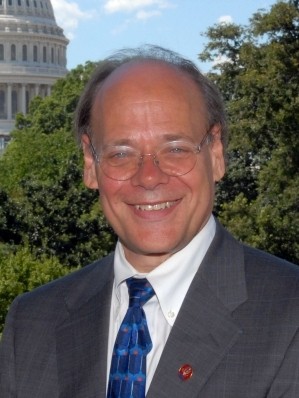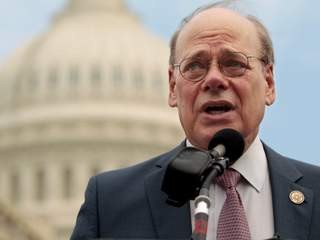When Congress returns to session in September, we will have a full plate, but it’s past time for the drug policy debate to move to the forefront.

At a cost of billions of dollars and with few positive results to show for it, 40 years of the War on Drugs has overcrowded our jails, perpetuated and exacerbated racial disparities in our society, and created a generation of Americans with little education and few job prospects.
For decades, I have fought for a fairer and smarter approach, particularly for marijuana. Finally, after many years in the political wilderness, I’m buoyed by rising public support for a better approach.
For the first time, a majority of Americans now support the legalization of marijuana — 52 percent according to a recent Pew Research poll.
This month, Attorney General Holder garnered bipartisan support for an overhaul to the Department of Justice’s draconian prosecution policies that have resulted in overly harsh and lengthy sentences — particularly for people of color.
His announcement follows the Fair Sentencing Act, which reduced the unfair and racially biased 100-to-1 sentencing disparity for those arrested for crack offenses — often low-income minorities — and those arrested with essentially the same drug in powder form — cocaine — who are more likely to be white.
And, in recent weeks, many have joined my call for President Obama to use his commutation power to help those who were convicted before the Fair Sentencing Act became law and are now serving sentences that no longer align with American priorities.
Public sentiment is building to reform our drug laws. Congress must catch up.
I am proud of my long-standing record on reforming our drug laws, though my positions have not always been politically popular. For example, in 1992, I was the sole opponent to repealing Tennessee’s medical marijuana law in the state Senate, and I was the author of the Tennessee Medical Marijuana Act to restore that important provision.
We must stop punishing those who are prescribed marijuana by their doctors to help treat the pernicious effects of cancer and other medical conditions. We should finally accept the reality that marijuana has many positive effects on a wide variety of patients.
As chair of the state and local government committee in the Tennessee Senate, I also led the fight against privatizing prisons, because I recognized that for-profit prisons would have an incentive to keep as many people locked up for as long as possible — including minor, nonviolent drug offenders who are now often incarcerated far longer than necessary for public safety.
I also fought to end the “cash register justice” system, which encourages law enforcement agencies to pursue the wrong priorities. And I repeatedly pressed the Tennessee Bureau of Investigation to focus on hard drugs like meth, crack, and heroin rather than wasting their resources on marijuana. Unfortunately, those pleas fell on deaf ears at the time.
Since arriving in Congress, I’ve continued to lead the fight for drug reform and worked to push the administration and my colleagues in the right direction. I’ve spoken with and written directly to both President Obama and Attorney General Holder to share my concern with the direction of their drug policies, particularly about the government’s continued targeting of individuals and businesses who fully comply with relevant marijuana laws in their states.
As Supreme Court justice Louis Brandeis said, states are “the laboratories of democracy.” If those laboratories are to make any sort of breakthrough, the federal government must give them that chance.
As a member of the House judiciary committee, I have also spoken directly to drug policy leaders, including FBI director Robert Mueller and drug enforcement administrator Michele Leonhart when they testified before the committee.
My message has been clear: People who pose no risk to society should not be in prison longer than necessary — if at all. We must reform our laws, and the president should commute the sentences of those serving outdated terms so that our nation can make better use of its increasingly limited resources.
Advocating for drug policy reform has often been a lonely pursuit. But I entered public service so that I could speak up on important issues, whether they were popular or not, and give voice to the voiceless.
After decades of fighting against a policy I thought was hurting this country — by throwing away the lives of millions of people and wasting precious resources — I’m pleased to see that public support is growing for those seeking to change these unjust laws. I’ll continue to lead the charge in Congress to see that our laws better reflect the values of our society.
Steve Cohen, a Democrat, is in his fourth term as the representative for Tennessee’s 9th Congressional District.

